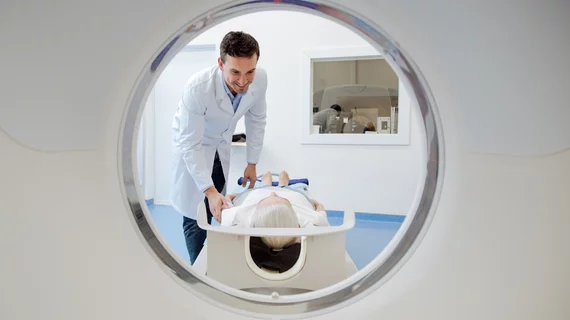Entrepreneur hopes to make portable, point-of-care MRI a reality
A new startup—Hyperfine—and its visionary leader Jonathan Rothberg are creating a new, portable MRI machine they believe can revolutionize the way doctors think about the technology.
Most MRI machines run using 1.5 Tesla magnets (some higher end models run on 3T), but Rothberg’s new machine is being built around a magnet that uses 0.064 Teslas, he told STAT in a recent interview.
Rothberg—responsible for creating a $2,000 handheld ultrasound attachment for iPhones—says the modality is the size of a “luggage cart,” will come with a $50,000 price tag, use 35-times less power and weighs 10-times less than 1.5T MRI machines.
“We’re definitely inventing something,” he told STAT. “Point-of-care MRI doesn’t exist. A portable point-of-care MRI doesn’t exist. And it’s great to fork history, but it’s more important to own that fork. So I hope we take enough lessons to do so.”
Read the entire story below.

